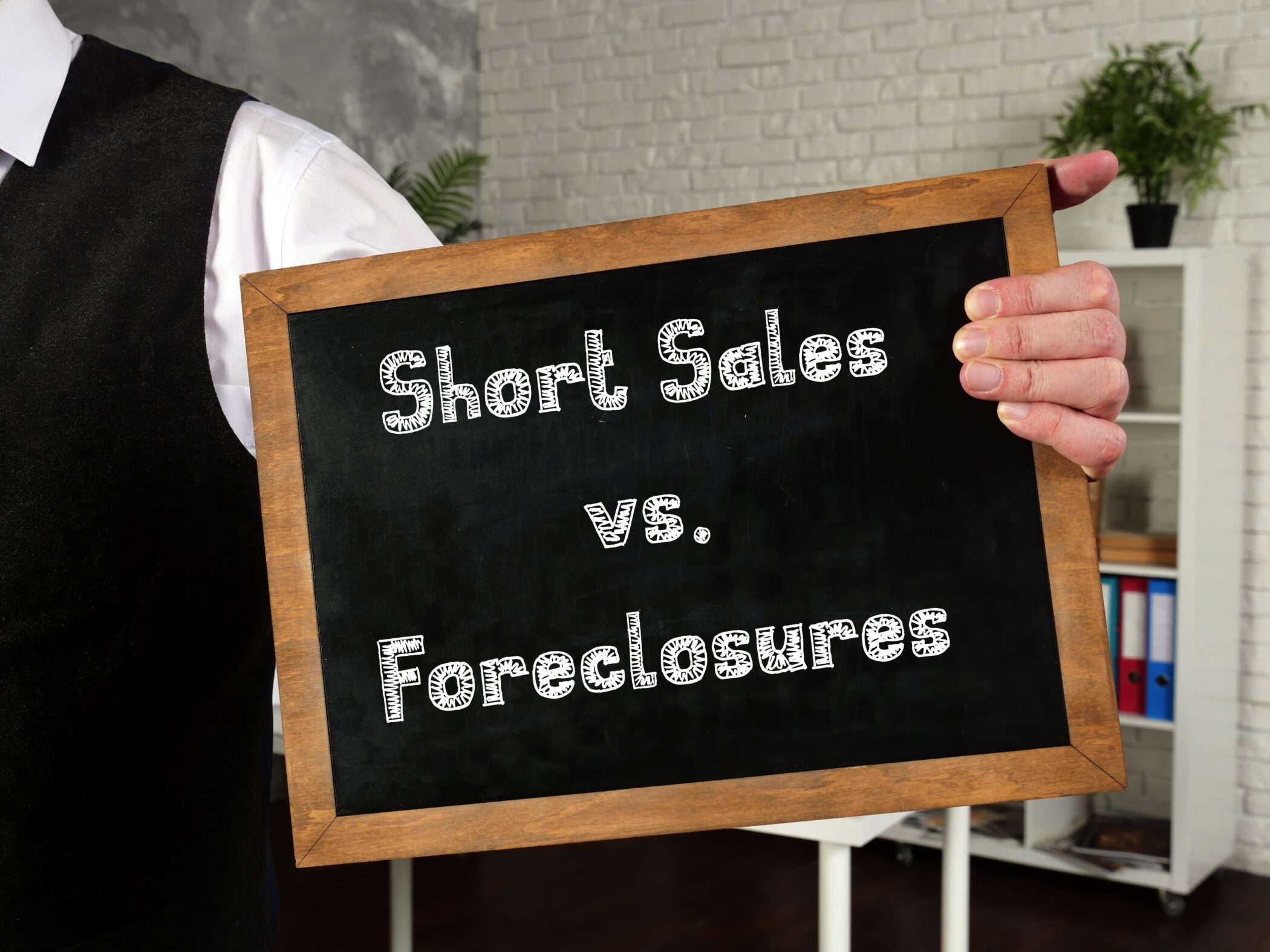If you’re like most people, you’ve undoubtedly heard of foreclosures on property, but the term “short sale” is a little less common. What’s is common, however, is significant confusion about what short sales are and how they differ from foreclosures — many people even think they’re just different terms for the same process. Substantial differences between the two exist, however — in this article, we’ll explore what they are, starting with a definition of each.
- Foreclosures are when the lending institution takes control of the property due to failure on the borrow to keep current on payments
- Short sales are when the lending institution agrees to allow the borrow to sell the property for less than their remaining loan balance
What Happens During a Foreclosure
Foreclosures aren’t a quick process, and one that doesn’t occur without the borrow having plenty of notice. In order for a foreclosure to occur, the lending institution has to follow procedures determined by applicable state statutes, which can vary significantly by individual state. Borrowers must receive adequate notice that the loan will be in default if payments aren’t made current within a specified period of time. If this fails to happen, the bank becomes the owner of the home, and the borrower must move out. The home then goes to auction, and if no one purchases it, the property is available for purchase from the lender.
Purchasing a Foreclosed Property
Because lending institutions aren’t in the business of selling homes, foreclosed properties are typically sold as-is, without the kind of updates and attention to curb appeal usually used to attract buyers to available properties. Foreclosures often need significant interior and exterior repairs, and their yards are frequently overgrown and in need of relandscaping. However, buyers can enjoy substantial savings when going this route, so foreclosures can be great deals for those with realistic visions and some experience with hands-on home improvement.
What Happens During a Short Sale
Short sales are related to foreclosures, but they occur on a different timeline. When it becomes clear that the borrow has such severe financial problems that a foreclosure is inevitable in the near future, the lending institution may agree to allow the borrower to sell the property for less than the full amount left on the loan. Borrowers typically agree to assume responsibility for any deficiencies owed to the lending institution. As opposed to foreclosures, short sales are voluntary on the part of the borrower. However, this course of action requires approval from the lender. Short sales don’t have the same long-term negative effects on the borrower’s credit or ability to purchase another home after their current financial setback has been resolved.
Purchasing a Short Sale Property
One of the main benefits of buying a short sale property is that a motivated seller is involved. Additionally, buyers can often pick up short sale property for less than market value. Other advantages of buying a short sale include quick equity and an empty unit ready the buyer to move into or rent to a qualified tenant. On the other hand, short sales take longer to process than foreclosures. A certain amount of repairs and restorations are also inevitable when going this route.
Contact Potempa for More Information
Our skilled lending team at Potempa has experience with short sales, foreclosures, and conventional sales. Please feel free to contact us through the online form on our website or by calling (855) 421-2753.





